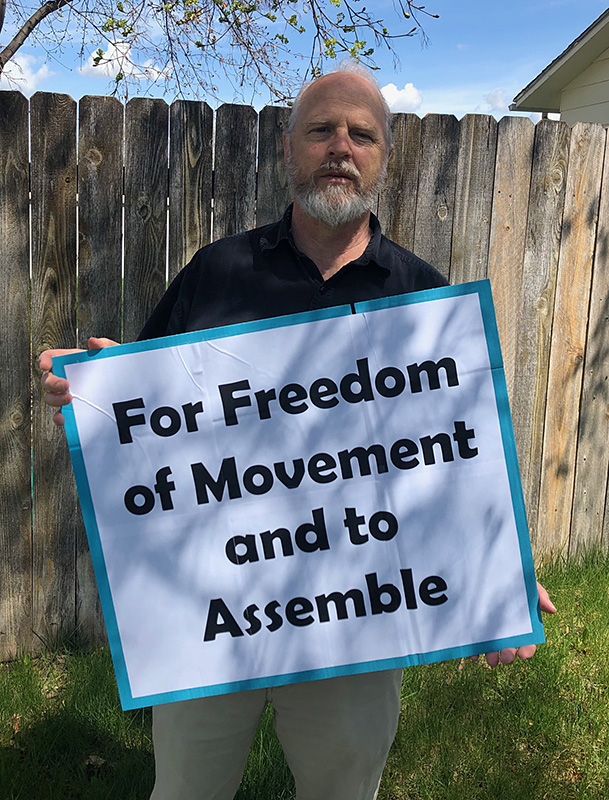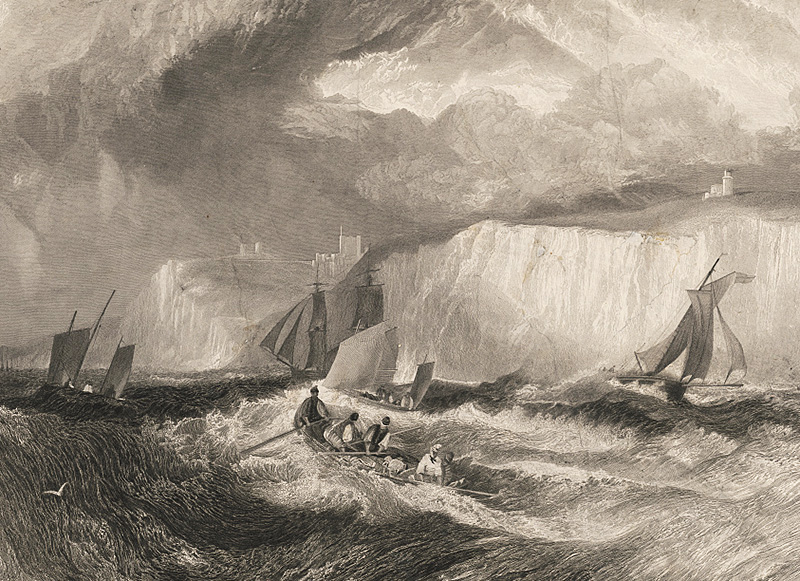Before I post about anything on my blog, I will have spent a fair amount of time and energy before arriving at some conclusion. There is always the chance that I could be wrong about my conclusions. But it is not without having spent sometimes considerable effort in researching the subject. On this ongoing debate over the COVID-19 crisis, I don’t remember when I have ever struggled so hard at trying to reason my way through something only to arrive, in the end, baffled.
Centuries from now when some alien race is sorting through the remains of our fallen civilization and they run across my journal entry from this day in the year 2020, they can be amused at my confusion over the COVID pandemic that seemed to mark the beginning of the end of the race known as humanly. Until then I write this for my own future reflection as I continue to hold out relentless hope for our species. 😊
First, to be clear, here is what I am NOT saying:
- I am not saying that there is no viral threat.
- I’m not saying that the threat of a pandemic should not be taken seriously or that we should not act decisively when such a threat presents itself.
- I am not suggesting we ignore or downplay what should be learned from history.
If our present circumstances inspire you to do nothing else, go watch or read up on the flu pandemic of 1918 to grasp how serious a thing a pandemic can be. This is not the kind of thing that should be taken lightly.
The horns of the dilemma I am wrestling with lie in trying to determine greatest threat between the current COVID-19 pandemic on the one hand, and the threat of loss to constitutional rights on the other.
Now, while you have your history book open, turn to 27 Feb 1933 in Germany. This is the date the Reichstag building was set afire. This was a critical point in German (and world) history where we see the beginning of a deterioration of important liberties for the German people.
I’m no historian, but having read The Rise and Fall of the Third Reich, I am familiar with some of the dangers that one man in power can inflict upon humanity. A brief perusal of Nazi Germany on Wikipedia reveals some key points of history that we would be wise not to forget. As it relates to loss of liberties, see if you can identify any similarities from the following excerpt and what we may see in our current day:
“Marinus van der Lubbe, a Dutch communist, was found guilty of starting the blaze [of the Reichstag building that was set afire]. Hitler proclaimed that the arson marked the start of a communist uprising. The Reichstag Fire Decree, imposed on 28 February 1933, rescinded most civil liberties, including rights of assembly and freedom of the press. The decree also allowed the police to detain people indefinitely without charges. The legislation was accompanied by a propaganda campaign that led to public support for the measure…
In March 1933, the Enabling Act, an amendment to the Weimar Constitution, passed in the Reichstag by a vote of 444 to 94. This amendment allowed Hitler and his cabinet to pass laws—even laws that violated the constitution—without the consent of the president or the Reichstag…
On 10 May, the government seized the assets of the Social Democrats, and they were banned on 22 June. On 21 June, the SA raided the offices of the German National People’s Party – their former coalition partners – and they disbanded on 29 June. The remaining major political parties followed suit. On 14 July 1933 Germany became a one-party state with the passage of a law decreeing the NSDAP [Nazi Party] to be the sole legal party in Germany. The founding of new parties was also made illegal, and all remaining political parties which had not already been dissolved were banned. The Enabling Act would subsequently serve as the legal foundation for the dictatorship the NSDAP established.”
Nazi Germany, Wikipedia (emphasis mine)
The article goes on. I leave it to the reader to read into it further. It will not be time wasted. Some key takeaways in the above example are how one public crisis, in this case, the arson of the Reichstag building, was used as a impetus to immediately rescind most civil liberties, including rights of assembly and freedom of the press etc. A few weeks later their constitution was amended to allow Hitler and his cabinet to pass laws to further violate the constitution. History shows that things continued to go downhill from there.
There are those in the more progressive or liberal camp, who fear what they see in the person of Donald Trump. A quick Google search brings up numerous articles comparing Trump to Hitler. It’s not hard to find similarities. It’s not just the similarities between the two as persons that have given rise to concern, but the similarities in their rise to power. To this, you could add this recent statement:
“’When somebody is the president of the United States, the authority is total,’ Trump said, referring to matters of public health and police powers inside the states. The assertion was dogpiled by legal analysts as a gross and wild misreading of the constitution.”
Trump claims ‘total authority’ and attacks media in chaotic coronavirus briefing, The Guardian
Though what he really meant by this statement has been a point of debate, the implication should concern us, no matter what side of the political arena you find yourself. A loss to any of our constitutional rights is a threat to all of them. What threatens freedom of speech also stands to threaten freedom of religion, freedom to peaceably assemble, and so on. Am I suggesting that Donald Trump poses a “Hitler-like” threat to the US? A better question would be, have we created any openings in the framework of our constitution that could allow anyone with ambition and an opportunity to pose a threat to the US?
If you turn back the pages of your already opened history book to the US Constitution and Bill of Rights you will find that having experienced the abuses of tyranny, the founding fathers included checks and balances to guard against it. How cautious should we be about situations that could threaten these checks and balances? How much can a little knowledge of history help protect us from such threats?
The question that arises for me, for those who are concerned about the threat Trump may pose to our liberties, is, why is there little outcry against loss of rights, but rather only voicing support of submitting to yielding to the imposition of lock-downs? The answer, I assume, has to do with the legitimacy of a greater threat that a pandemic poses to the safety of the people. On the other hand, for those in the traditionalist or conservative camp, the greater concern appears to be that once certain rights are given up, the precedent has been set that such measures can now be imposed upon the people even when the full gravity of a threat like this (or a future) pandemic is unknown or ill-defined.
In my last article, Why I Will be Joining the Protest Tomorrow, I made a point of how “extraordinarily speculative” the threat of this “ill-defined, unproven, unknown viral threat” is. I’m aware that these are bold statements. Though I may have used different words, they reflect no more and no less than what I have heard being said by those responsible for the lock-down measures that have been imposed.
These statements by Dr. Anthony Fauci confirm that the lock-down measures were not based on models:
0:10 Reporter: I’d like to start with the question of these models which are now getting a lot of push-back in terms of their reliability when the numbers have swung 33% in just a couple of days. What do you say to Andy McCarthy in that piece?
Dr. Fauci on criticism of coronavirus modeling, Apr 10, 2020
0:26 Fauci: Well there’s a certain validity to it. I have been, and still am, and will always be somewhat reserved and skeptical about models. Because models are only as good as the assumptions that you put into the model. And those assumptions that start off when you don’t have very much data at all, or the data that you have is uncertain, that you put these assumptions in and you get these wide ranges of calculations of what might happen. You know, 100,000 to 240,000 deaths. But then as you start to accumulate data, data that’s real data, likely being influenced heavily by the mitigation programs that you put in separations, that when real data comes in, then data, in my mind, always trumps any model. And you have to modify the model and the assumptions as you get data in. So I have no problem with people who are critical of modeling, because modeling is inherently, an imperfect science. So I don’t have any quibbling with that. And you just got to make, as you collect real data, you rely more on the data than you do on the model.
1:38 Reporter: Sure. All of that makes a lot of sense. But I think one of the problems is that those models were what were used to shut down the United States economy. The fear that those numbers, when we looked at 100,000 to 240,000 people, and then that was, I should point out, including mitigation and social distancing. That was with that factored in. So that number has dropped by 33%. So I guess, you know, what kind of model is so far off that it leads us to policy making decisions, that now are having such dire consequences.
2:13 Fauci: Yea, well first I think it’s important to point out that it isn’t the model or the result of the model, that really led to the decision to have such strong mitigation programs such as physical separation. You don’t even have to look at any model. Just take a look at what happened in China. Take a look at what happened in Northern Italy, how the hospitals were completely overrun, and the draconian methods that had to be taken in China to turn down their outbreak. So I mean if I never saw a result of a model, that alone would clearly indicate that something rather significant needed to be done to prevent the spread. So again, getting back to models. And I wouldn’t argue with anybody that has a problem with a model. I inherently have problems with models.
12:44 Fauci: … we don’t know a certain fact, that we’re not sure of, is what percentage of people who are infected are those who are completely asymptomatic. I mean are there people who’ve been infected, cleared the virus, never knew they were infected, never knew they were sick. Is that 10%, 20%, 50%, we don’t know that yet. When we get anybody testing that we can do serial surveillances, of representative sections of the population, then we’ll have a better feel for that. But until then, we don’t know.
Rather than speculative models, Fauci tells us the decisions of shutting down the United States economy were based on what was observed to be happening in China. So I ask, was it “ill-defined” to base these decisions by looking at what happened in China ?
2:23 Fauci: Early on, we did not get correct information. And the incorrect information was propagated right from the beginning because you know when the first cases came out that were identified, I think on Dec 31st, in China, we became aware of this, they said that this was just animal to human, period. Now we know retrospectively that there was ongoing transmission from human to human in China, probably at least a few weeks before then. And then when we finally did get the virus here, it became clear that when we started looking at what was going on, that that was misinformation right from the beginning. So whosever fault that was, you know we’re gong to go back and take a look at that when this is all over, but clearly it was not the right information that was given to us.
Fauci discusses how China’s disinformation increased coronavirus spread, Apr 11, 2020
I’m open to accept I could be incorrect in my conclusion that the decisions about the lock-down measures have been the result of “ill-defined speculation.” It is because of these “ill-defined contours” that I believe we are seeing a wide polarizing disparity of inconsistency and contention on both sides of the “Stay in Place” vs “Open Back Up” debate.
Can the people be trusted?
Once asked how it was that he was able to govern so many people in Nauvoo with such perfect order, Joseph Smith responded, “I teach them correct principles, and they govern themselves.” (“The Organization of the Church,” Millennial Star, Nov. 15, 1851,339)
Last week I watched the April 26th press conference with New York Governor Cuomo. His trust in the people of New York to act responsibly when presented with the facts, reminded me of the this pearl of wisdom by Joseph Smith quoted above.
“If people have the facts they will act responsibly. But, they have to have the facts. They have to buy into the plan. And it really is an individual decision. Who’s taking care of your health? You are. We’re mutually dependent in that what I do can affect your health. But it really comes down to giving everybody information so people can make their own decision, and the great achievement in this period has been that when people get the facts, and they trust the facts, and they understand the facts, they do the right thing. And that is a lesson that I hope people remember when this is all over. But, we still have to remember the facts.”
New York Governor Cuomo Coronavirus News Conference, Apr 26, 2020, starting at 2:25min
This echos what Provo Mayor Michelle Kaufusi said on Sunday:
“My perspective over the last few weeks has been this: Our citizens and institutions have shown incredible trustworthiness… For now, I have been content to exercise the only power I’ve felt powerfully good about exercising in these circumstances: the power of persuasion.”
Michelle Kaufusi, Provo Mayor, Apr 26, 2020, Mayors of Utah Valley: Why no stay-at-home order, Mayor?
My opinion is that the reason we see so many hot-headed people acting erratically (on either side of whatever camp you may find yourself) are the the very reasons Cuomo explained. They either don’t have the facts, they don’t trust the facts, or they don’t understand the facts.
The truth of Cuomo’s comments can be validated by research done by Asher Israeli and Bradley Fisher titled “The Worker Is Never Wrong” (Oct 1989, Quality Progress). This research was quoted in training that I took a few years ago from the Institute of Process Excellence where they discussed how root causes for nonconforming products, rework, and so on, are often blamed on “workers” who lack discipline or do not care. The research in the article, however, notes that workers carry out their jobs well when given accurate and clear work instructions. The cause for nonconformances resides with the managers responsible for the process, not the workers. I believe there is a direct correlation to how we see workers respond to correct information and facts, and how we can expect citizens will respond to correct information.
“We arrived at this conclusion after exhaustively investigating causes of nonconformances — when workers are given accurate, clear, fully detailed work instructions, they carry out their jobs well.
Workers are responsible for the decisions they make within the framework of the work instructions. Thus worker performance is not evaluated — their decisions are.
Work instructions must be promptly updated because not following a work instruction is considered to be an improper decision.
Work instructions must be clearly written, leaving no room for misinterpretation. All elementary operating and inspection decisions are included. Criteria for acceptability are clearly stated.
This process was implemented at Israel Military Industries where 900,000 worker decisions were audited over a 27-month period. Only 205 were found to be wrong. Nonconformances dropped drastically and waiting time for process and inspection time was eliminated. For all practical purposes, roving and acceptance inspection has been eliminated.
Condensed from a 4-page article in Quality Progress
I believe Governor Cuomo was right. When people have the right facts, and they understand and trust those facts, they will act responsibly.
As I was wrapping up this post, someone shared with me an article that beautifully illustrates much of what I’ve been spending this last week trying to put into words. The article is from IntellectualTakeout.org published May 1, 2020 by Jon Miltimore titled WHO Declares Sweden’s COVID Response a Model for the World. Well worth the read. Here are a few excerpts:
Ryan said the biggest difference between Sweden and most nations is that the Swedes are encouraging voluntary participation with its citizens while focusing government resources on at risk populations…
As my colleague Dan Sanchez pointed out last week, this approach once was part of the fiber of the American system.
“Measures based on individual responsibility used to be part of the American model, too, as codified in the Bill of Rights. Yet we have developed a culture of reflexively giving up that responsibility and those rights whenever we get scared: of terrorists, of economic hardship, of a virus.”
Many seem to believe that voluntary actions are somehow less effective than government dictates, but this is simply not true. Human cooperation and voluntary action are essential ingredients to a vibrant, prosperous culture…
Whatever the future holds, the world owes Sweden thanks. The Swedes have shown us a better way. They’ve reminded us that the proper role of the state is to inform individuals and work with them, to seek voluntary action and cooperation instead of resorting to blunt force and edicts.
My hope is that the US can learn from history. There are things we should not forget. Like lessons learned from the Spanish flu in 1918, and Nazi Germany of 1933-1945. And thanks to Sweden, it looks like there are other things in this world that are worth repeating. Like giving people correct information and trusting them to voluntarily act in cooperation with each other and the state. My prayer, adopting the spirit of the famous Serenity Prayer, would be:
God grant that we may preserve the things that should not change,
Correct the things that need improved,
The courage to avoid repeating the errors of history that can destroy us,
And the wisdom to know the difference.



